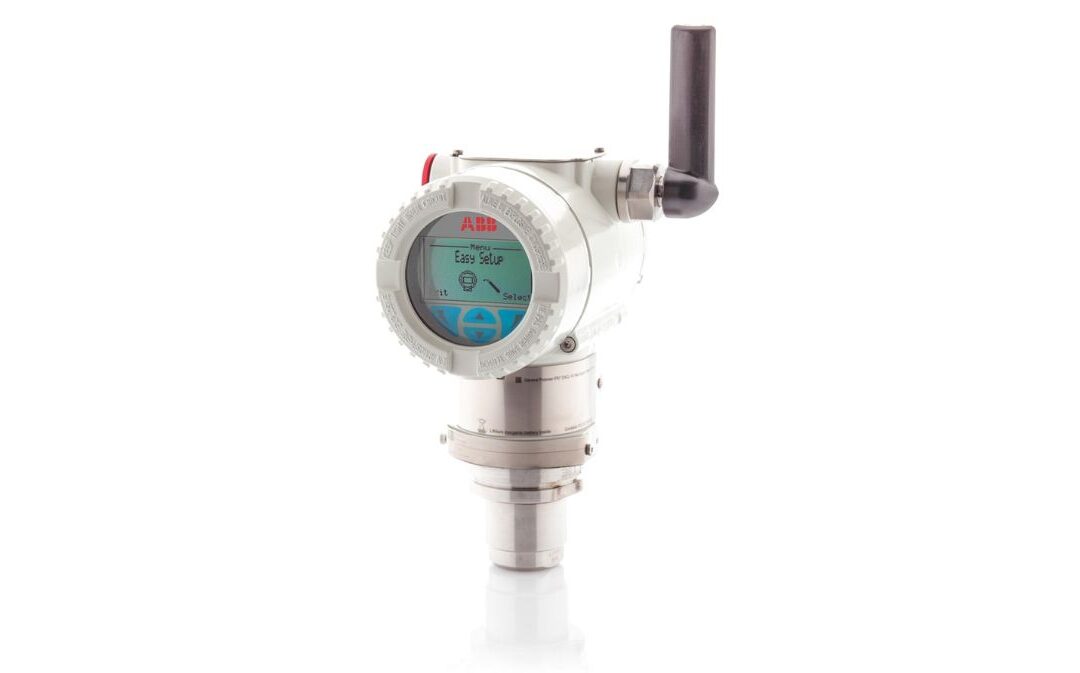Process monitoring of conductive liquids in a flow system commonly requires an electromagnetic flow meter to measure the revenue collection, liquid transportation, and energy conservation of a closed flow system.
Carrying out flow measurements according to this principle requires components capable of generating a magnetic field within an insulated metering tube. An electromagnetic coil applies the field to the interior of the pipe and electrodes assess the voltage of the conductive fluid as it flows through the cross-section.
This article will explore the use of electromagnetic flow meters in more detail:
Basic operating principles of an electromagnetic flow meter
An electromagnetic flow meter operates on Faraday’s Law of Induction, a fundamental principle of electromagnetism. This posits that there is a proportional interaction between the induced signal voltage of a conductor and its velocity as it flows through a magnetic field in a perpendicular direction. Assessing the signal voltage of wastewater as it flows through an electromagnetic cross-section, for example, informs observation of its actual velocity as it travels through a pipeline.
An electromagnetic flow meter is equipped with a dielectric liner material such as hard rubber or ceramic carbide. This ensures that the magnetic field is localized with extreme precision to the inner diameter of the process tube. Electrodes within the component can then accurately acquire the voltage of the conductive media as it flows through the cross-section with negligible interference from conductive metal components.
The acquisition of this data is also unaffected by temperature, pressure, density, or viscosity of the conductive media. This allows the component to assess the solid and amorphous composition of a liquid or gas flow system, enabling the detection of various contaminants.
Electromagnetic Flow Meters from ABB
ABB is an industry-leading supplier of process-control equipment for an extensive range of industries. We provide over 60 electronic flow meters with distinct measurement methodologies, including mass flow, thermal mass, and variable area flow meters.
Our electromagnetic flow meters are divided into two distinct categories: process industry; and water treatment mag flow meters. This range includes:
- ProcessMaster FEP630, the next generation of flowmeters. They provide an innovative modular transmitter design combined with SmartSensor Technology and built-in Verification which includes gas bubble monitoring. The flowmeter meets the highest demands for enhanced meters in the chemical, power, oil & gas, pulp & paper, and metals & mining industries, allowing measurement of conductive fluid up to 180°C.
- HygienicMaster FEH600, The flowmeter is ideally suited for hygienic standard applications. Simple and economical. Perfect cleanability. Worldwide hygienic & food approvals. Wide variety of industrial-specific process connections.
- WaterMaster FE*100 flowmeters set the standard for water, wastewater, sewage, and effluent flow measurement and management. WaterMasters provide high accuracy bidirectional flow measurement, “Through the glass” configuration, and are MCERT approved.
- AquaMaster FEW400 is the ideal flowmeter for potable water distribution networks, revenue metering, and irrigation applications. They provide reduced bore, flexible power options including battery, and communication options including Modbus, NFC interface to mobile phones, and 4G. Allows the highest levels of measurement accuracy in even the remotest of locations
If you would like any more information about our electromagnetic flow meters, contact us below.






